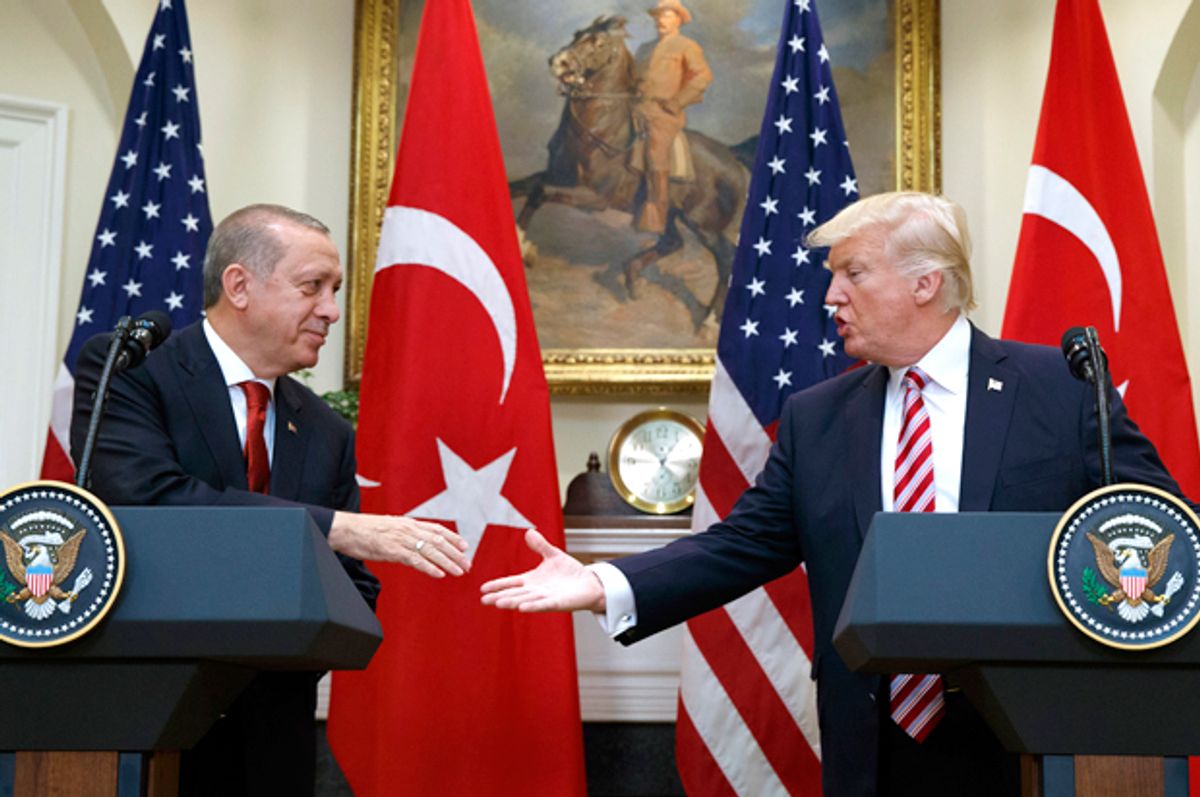In its 56 years of existence, Amnesty International has stood up for those who dare to speak truth to power in the face of oppression and abuses of human rights. We have seen regimes come and go, and have seen the power of courageous and peaceful protest in bringing about change. But what we are seeing now around the world is a dangerous and sweeping trend of dehumanizing and divisive rhetoric seeping into politics, resulting in oppressive policies that are putting human rights defenders at risk.
It’s not just happening in a few isolated areas.
Agendas that advance an “us versus them” mentality and that feed on hate and fear threaten to push back human rights and stifle dissent around the world. Very recently, this poisonous political climate hit home for our organization when Taner Kilic, the chair of Amnesty International Turkey, was arrested on the completely fabricated charges of being tied to a political movement connected to last year’s coup attempt.
The evidence against Taner would be laughable if the consequences weren’t so dire. Turkish authorities are claiming that his use of a popular encrypted messaging app is an indication of criminal behavior. They are seizing on any link, however tenuous, to try to justify keeping Taner in detention. Taner is just one of thousands, including reporters, activists, and former government employees, who have been imprisoned, unemployed or disappeared as part of President Erdogan’s brutal crackdown on anyone who dares to be – or is even perceived to be – critical of his government.
Using imprisonment or the threat of arrest to silence critics is nothing new. Thirty years ago, I myself was imprisoned in a South African jail for five months for my activism against apartheid. But today, leaders like Erdogan seem to be more emboldened than they’ve been in decades in being so open about their oppression.
The fact that many of these leaders have the tacit – and sometimes blatant – approval of leaders like President Trump makes the stakes for human rights defenders that much higher.Trump has already hosted and praised Erdogan in Washington, D.C. – while Turkish security forces attacked protesters.
His notorious affinity for Vladimir Putin may also encourage further hostility toward civil society by the Russian government. Amnesty’s Moscow office was inexplicably sealed for days late last year. Just this week, hundreds of protesters were arrested across the country. Also this month, Russian NGO leader Valentina Cherevatenko was charged under a law that requires organizations that receive federal funds to register as foreign agents. She faces years in prison. The prime minister of Hungary, Viktor Orban, liked this law so much that he successfully championed a similar iteration of it in his own parliament. Orban had previously caught our attention with his cruel hostility to migrants and refugees at the border, and rose to power on an unapologetically anti-immigrant agenda. He was the first leader of an E.U. or NATO country to formally endorse Trump’s presidential campaign and claimed to have been invited to the White House shortly after Trump's election.
Trump has also expressed admiration for Philippines’ president Rodrigo Duterte, who justified thousands of extrajudicial killings by demonizing drug dealers and addicts. Duterte said it was “funny” that Amnesty would be calling on him to stop the killings.
And despite the warm reception given to Donald Trump in Saudi Arabia, human rights defenders are left to languish out of sight. Activists like the blogger and poet Raif Badawi, who has spent four years of a 10-year sentence in prison for writing pieces critical of the government, and faces being whipped publicly for 1,000 lashes.
While no one country can claim to be the vanguard of human rights, when particularly powerful countries like the United States turn a blind eye to human rights abuses, it contributes to a global climate in which other governments follow suit. Theresa May recently said that she was willing to repeal human rights laws that stand in the way of counterterrorism efforts.
That’s why it’s more important than ever that those who believe in human rights to stand firm wherever justice, freedom, truth and dignity are denied. Even if it seems like the powers that be aren’t responsive. We are already seeing our persistence pay off. Despite President Trump’s dismissive rhetoric and hateful policies like the Muslim ban, the State Department has been quietly returning to a human rights focus, raising the number of refugees to be allowed into the country and even speaking out on behalf of Taner Kilic.
Change only happens when we stand up and speak out. We will not allow the politics of hate and fear to become normalized. When human rights defenders are unfairly maligned as enemies of the state, everyone suffers.

Shares